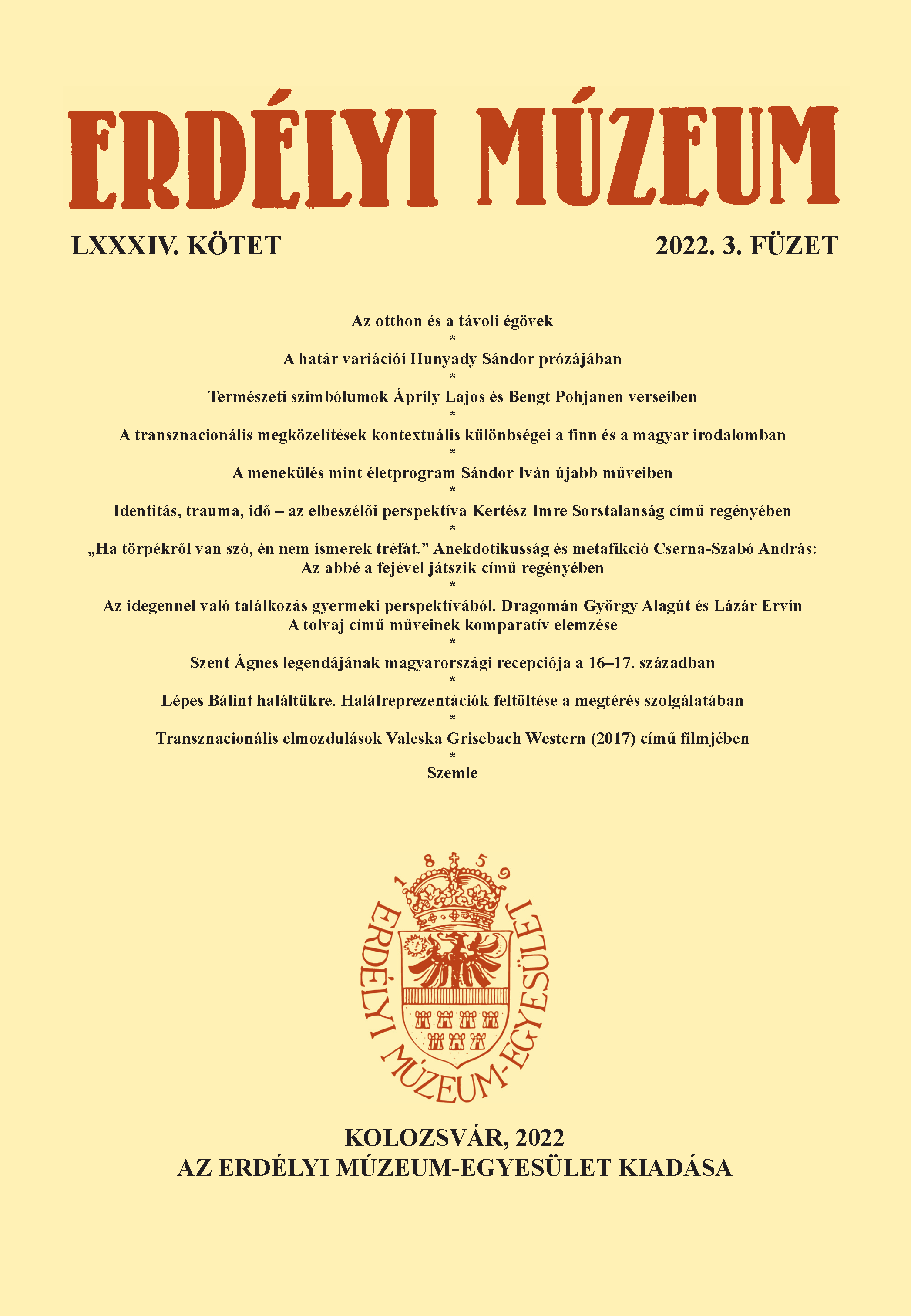Identitás, trauma, idő – az elbeszélői perspektíva Kertész Imre Sorstalanság című regényében
Identity, Trauma, Time – The Narrative Perspective in Imre Kertész’s Fatelessness
Author(s): Tamás Hunor KecskésSubject(s): Cultural history, Recent History (1900 till today), Hungarian Literature, History of the Holocaust
Published by: Erdélyi Múzeum-Egyesület
Keywords: Holocaust; focalisation; narrative identity; trauma; forms of time in the novel;
Summary/Abstract: Imre Kertész’s Fatelessness is not primarily exciting because of innovations in form-structure, in its poetics or genre configuration, like other works in the history of the 20th century novel. It is the narrative technique that brings something radically new to the literary narrative - it is through the narrative technique that he is able to convey even what might be considered as a traumatic event. The knowledge of the aged self is deliberately repressed, and its place is almost always taken by the opinions of the young alter-ego. At strategic points in the text, the narrative slips into another focalisation point: it temporarily suspends its subordination and its object position precisely by adopting the perspective of the actor responsible for the sense of actual threat. When Gyuri abandons these strategies and takes responsibility, he acquires a narrative identity.
Journal: Erdélyi Múzeum
- Issue Year: LXXXIV/2022
- Issue No: 3
- Page Range: 66-79
- Page Count: 14
- Language: Hungarian

